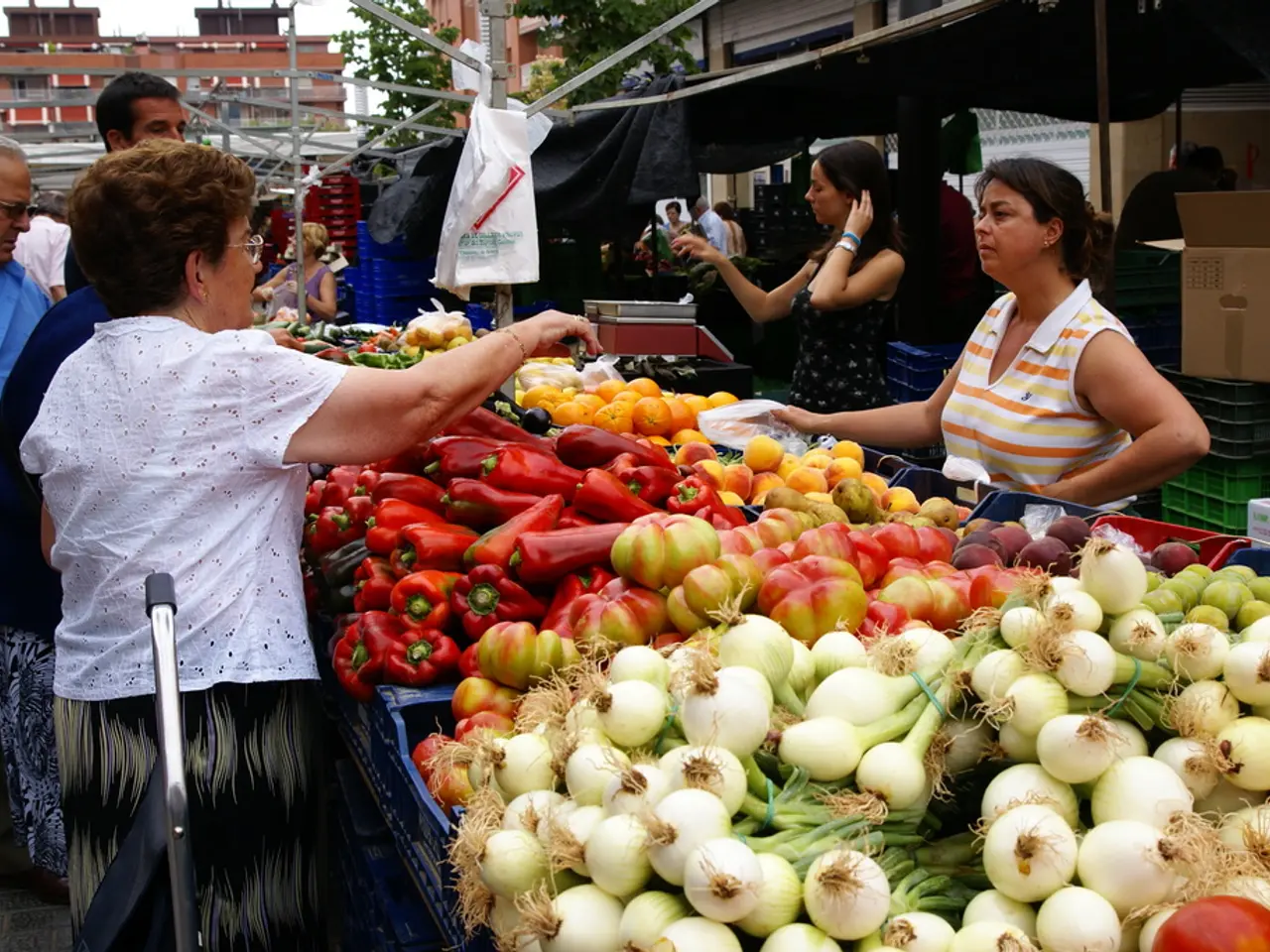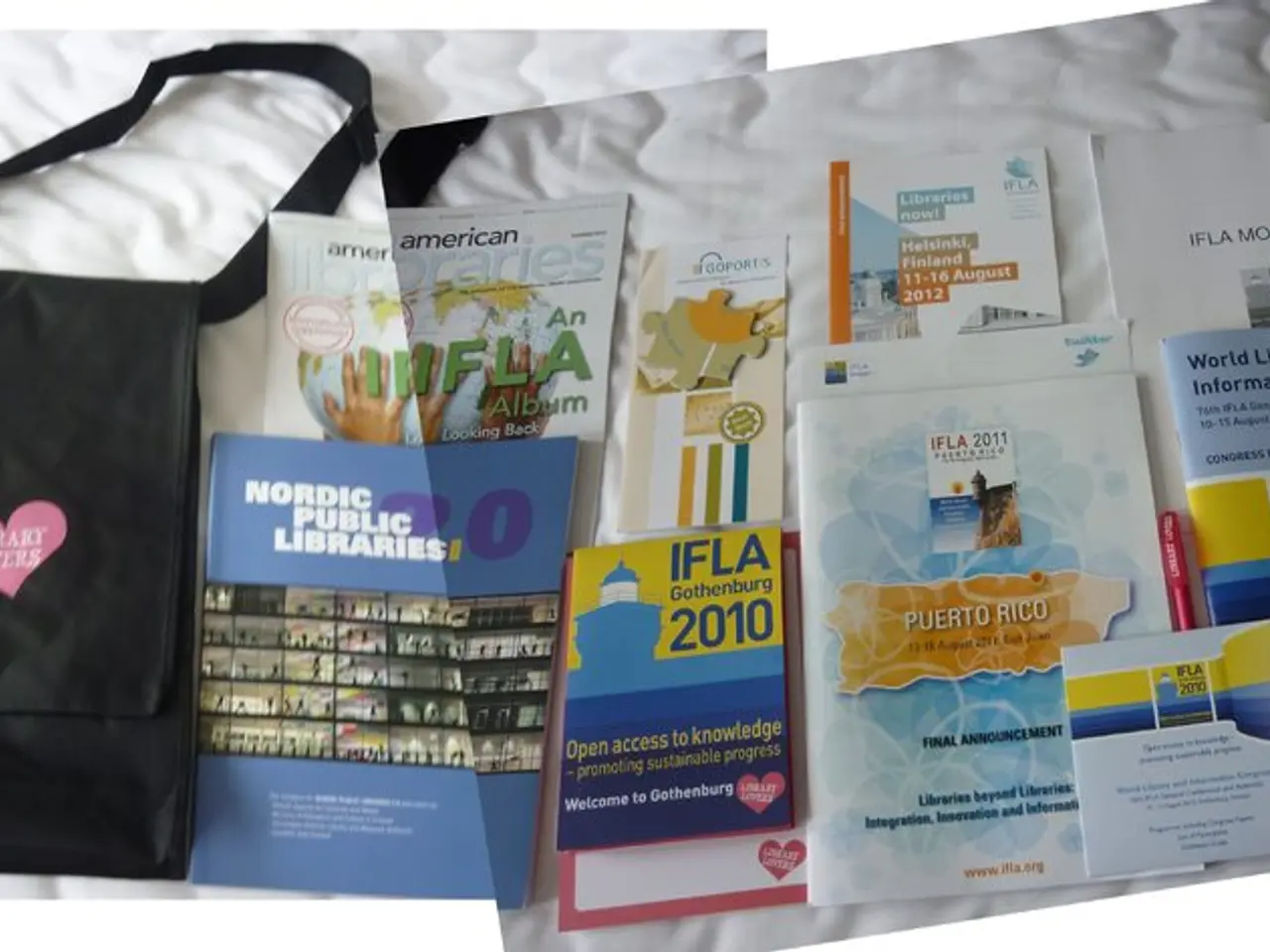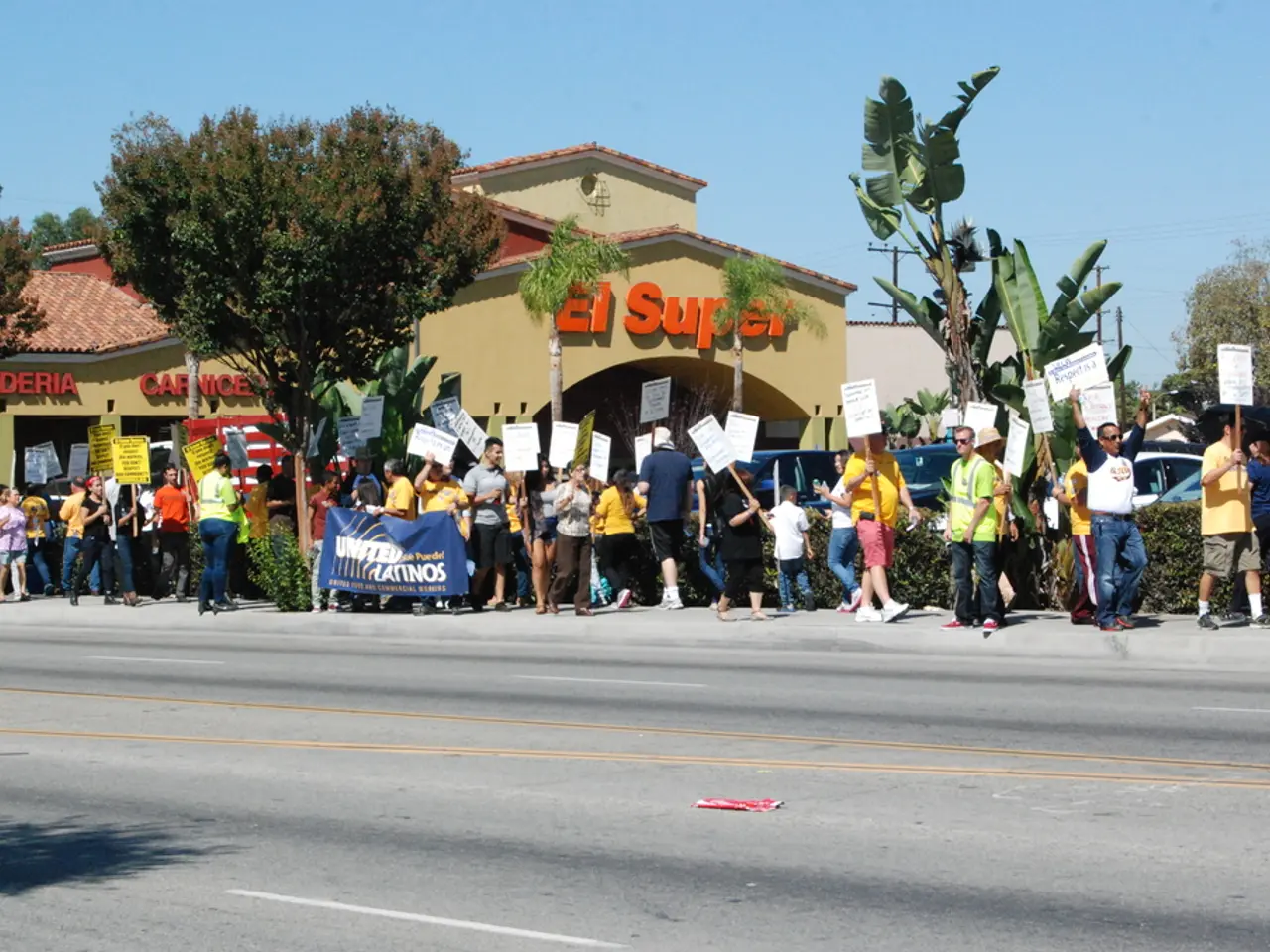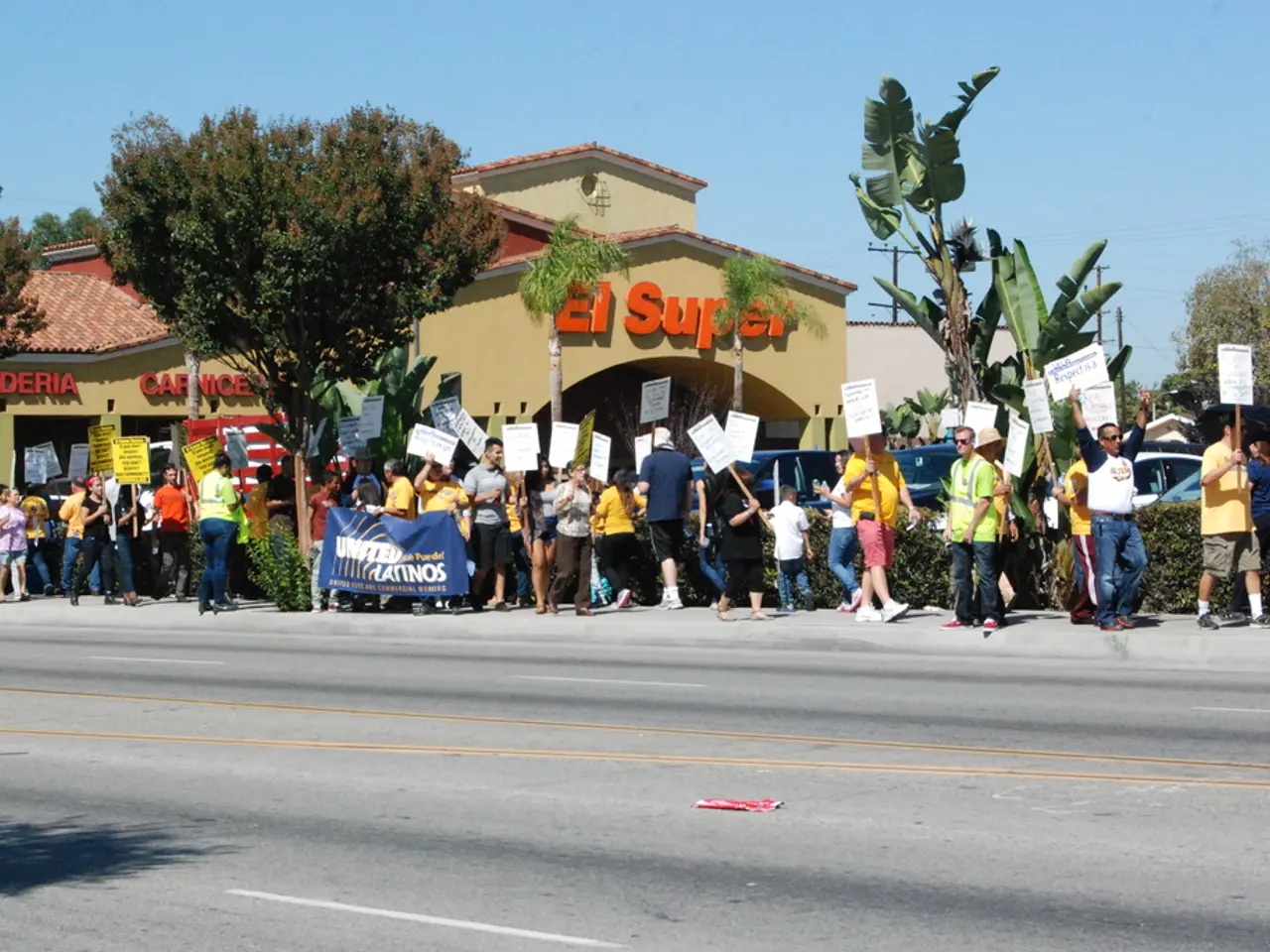Commencement of new activities today
The United Nations Environment Programme's International Negotiating Committee (INC) is currently engaged in a crucial phase of negotiations to finalize a legally binding global treaty addressing the full life cycle of plastics, from design to disposal. The key session (INC-5.2) is scheduled to take place in Geneva from August 5 to 14, 2025 [1][3][5].
The negotiations are focusing on establishing effective, enforceable global policies rather than relying solely on voluntary commitments. The draft treaty text under discussion includes provisions aimed at creating a legally binding instrument, reflecting a broad consensus that voluntary approaches are insufficient given the scale of plastic pollution [1][3][5].
The major elements under discussion in the treaty include setting global targets for sustainable plastic production and consumption, regulating harmful chemicals in plastics, promoting plastics circularity to prevent environmental leakage, addressing the entire plastic life cycle—from design and production through to waste management and disposal, and emphasizing the transition to a circular economy rather than relying on recycling alone [2][5].
Meanwhile, the Zero Plastic Index, developed by Boersenmedien AG and holding the rights to it, offers a different approach. This tool is aimed at addressing the global plastic waste problem by focusing on companies offering real solutions to the issue. The Zero Plastic Index does not repeat earlier suggested regulatory framework points like reducing global plastic production, banning single-use plastic, or introducing binding refill quotas [4].
Instead, the Zero Plastic Index includes companies such as Tomra, Carbios, Mayr-Melnhof, and Veolia, which offer solutions to plastic waste through their products [7]. More information about the Zero Plastic Index and its associated products can be found online. It is important to note that Boersenmedien AG receives remuneration from the issuers of the securities associated with the Zero Plastic Index [6].
The ongoing negotiations in the UN conference face challenges due to disagreements on topics like the handling of toxic chemicals, global reduction targets, and funding issues [1]. Influential states like Saudi Arabia, Russia, Iran, and lobby groups from the plastics and oil industries are pushing for the agreement to focus only on waste management, while environmental organizations advocate for an ambitious regulatory framework that addresses the root causes of plastic pollution [1].
The Zero Plastic Index does not mention the push from these influential states and lobby groups for the agreement to focus only on waste management or the advocacy for voluntary concepts such as chemical recycling, which are viewed by critics as mere window dressing [8].
In summary, the global negotiations are actively striving for a legally binding treaty with robust, enforceable measures rather than mere voluntary pledges, centering on a systemic approach encompassing the full plastic life cycle and promoting circularity. Meanwhile, the Zero Plastic Index offers a complementary approach by focusing on companies offering real solutions to the global plastic waste problem [1][3][5].
References: [1] UN Environment Programme. (2025). UN Environment Assembly Resolution 5/21: Towards a legally binding instrument on plastic pollution. Retrieved from https://www.unep.org/resources/resolutions/un-environment-assembly-resolution-521
[2] European Commission. (2021). Proposal for a regulation of the European Parliament and of the Council on the reduction of plastic waste and waste from plastic products. Retrieved from https://ec.europa.eu/commission/presscorner/detail/en/IP_21_2978
[3] Ellen MacArthur Foundation. (2021). New Plastics Economy Global Commitment. Retrieved from https://www.ellenmacarthurfoundation.org/work/initiatives/new-plastics-economy-global-commitment
[4] Boersenmedien AG. (2023). Zero Plastic Index. Retrieved from https://www.boersenmedien.de/en/index/zero-plastic-index/
[5] World Economic Forum. (2022). The circular economy opportunity in a post-COVID world. Retrieved from https://www.weforum.org/reports/the-circular-economy-opportunity-in-a-post-covid-world
[6] Boersenmedien AG. (2023). Remuneration from issuers of securities associated with the Zero Plastic Index. Retrieved from https://www.boersenmedien.de/en/index/zero-plastic-index/remuneration/
[7] Boersenmedien AG. (2023). Companies included in the Zero Plastic Index. Retrieved from https://www.boersenmedien.de/en/index/zero-plastic-index/companies/
[8] Greenpeace International. (2023). The Zero Plastic Index: A step in the right direction, but more is needed. Retrieved from https://www.greenpeace.org/international/en/news/The-Zero-Plastic-Index-A-step-in-the-right-direction-but-more-is-needed/
- The UN Environment Programme's negotiations are focused on establishing a legally binding global treaty on plastics, which includes provisions aimed at addressing the full plastic life cycle, rather than relying on voluntary commitments.
- In contrast, the Zero Plastic Index, developed by Boersenmedien AG, focuses on companies offering real solutions to plastic waste, such as Tomra, Carbios, Mayr-Melnhof, and Veolia, without mentioning the push for agreements to focus only on waste management or the advocacy for voluntary concepts.
- The ongoing global negotiations in environmental science and policy-and-legislation face challenges due to disagreements on topics like handling toxic chemicals, global reduction targets, and funding issues; meanwhile, the politics of the plastics and oil industries may influence the final agreement's scope.







